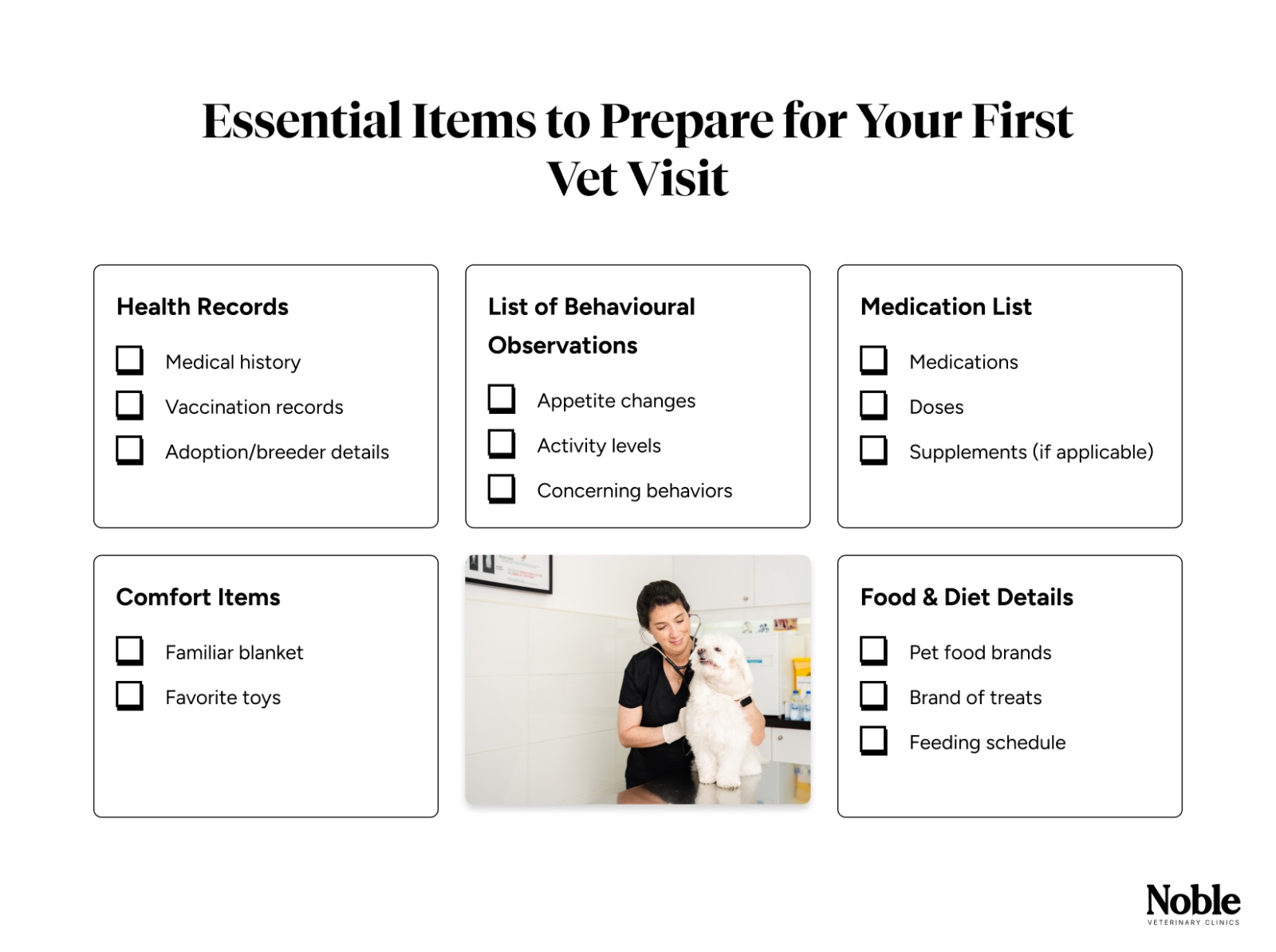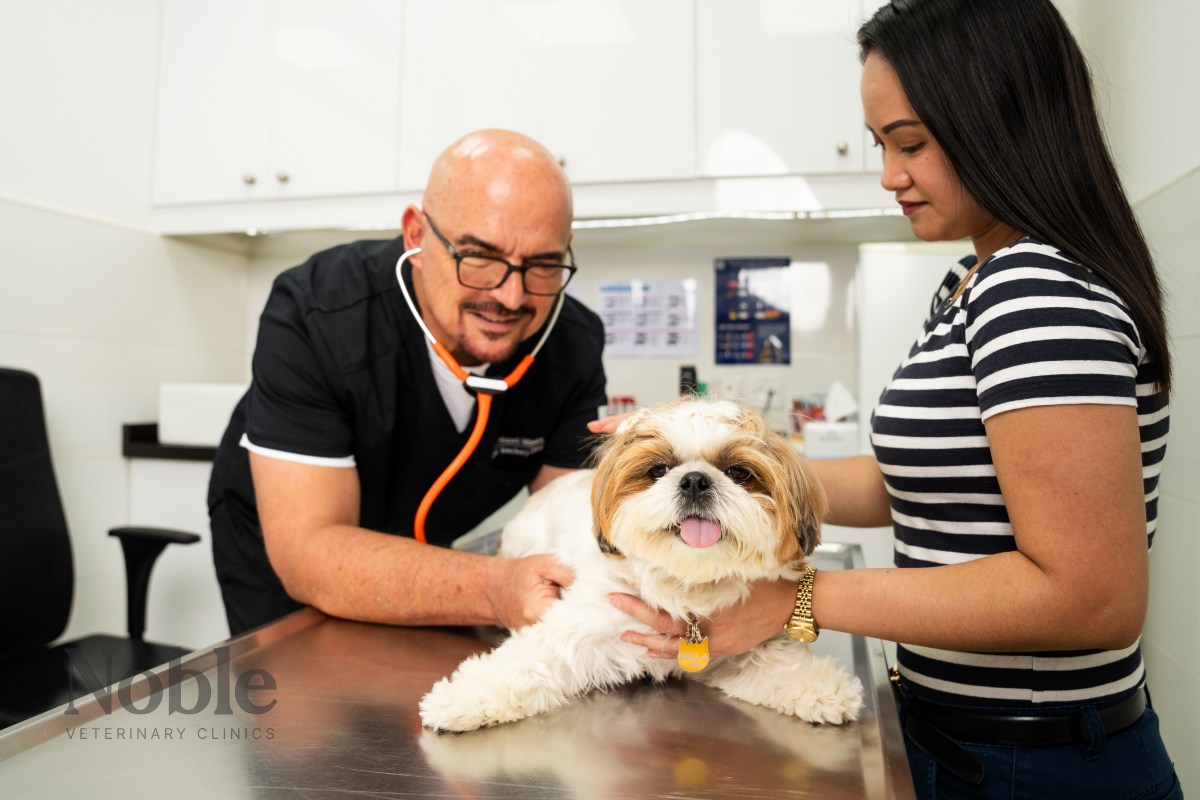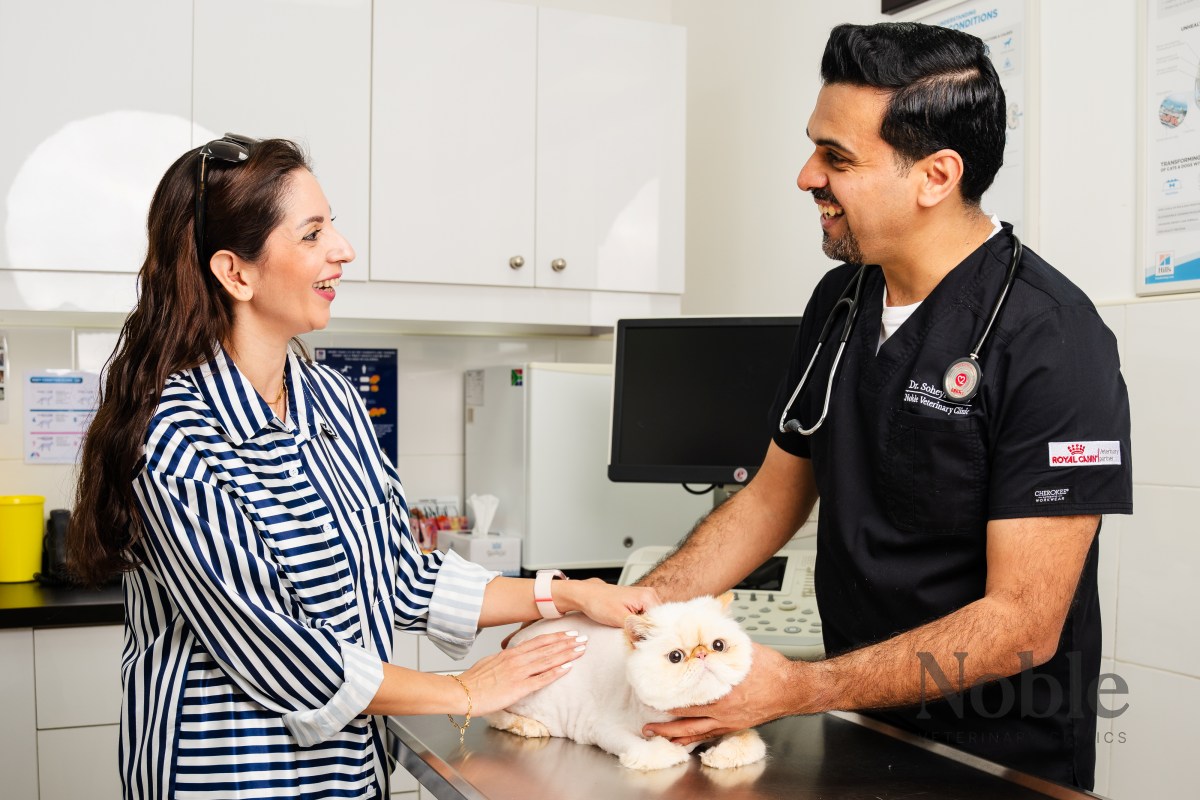A pet’s first veterinary clinic visit can be exciting and overwhelming at the same time.
Understanding what to expect when you bring your pet to the clinic for the first time can help you feel less anxious. You can also help your pet prepare to meet the vet, who will be responsible for keeping it healthy.
For first-time pet owners, here’s a guide on what to expect on your first vet visit. We’ll also discuss how to prepare your companion and what you should do after the visit.
Preparing for Your Visit to the Veterinary Clinic
It’s essential to be prepared before taking your pet to the vet for the first time so everything goes smoothly. Be ready to bring these items with you:
- Health Records: Bring your pet’s medical records, vaccination history, and, if applicable, adoption or breeder details. These documents will help the vet understand your pet’s medical history better.
- Medication List: List the medications, doses, and supplements your pet is taking.
- Food and Diet Details: Note your pet’s diet, including the pet food and treat brands, as well as its feeding schedule.
- Behavioral Observations: Take note of any concerning behaviors, such as appetite changes and activity levels, to discuss with your vet.
- Comfort Items: Pets can feel anxious when going to an unfamiliar place. To help them feel safe and secure, bring familiar items like a blanket or toys.
You can call the veterinary clinic in advance to know if you need to bring stool samples or if your pet needs to fast for any specific diagnostic tests.
Arriving at the Veterinary Clinic
Keep in mind that your pet might not be the only animal at the vet clinic. It’s ideal to arrive a bit earlier than the scheduled visit. This will give you and your pet time to adjust to the new environment before meeting the vet.
- Safety: Secure your pet using a carrier for small animals like cats. For larger animals like dogs, you should use a leash or body harness to comply with local regulations, such as in Dubai, where it’s illegal to have dogs outdoors without a lead.
- Etiquette: In case your pet might feel anxious, you should inform the clinic staff. You might have to wait in your car or outside to avoid making other pets in the waiting room feel anxious.
- Paperwork: If you’re visiting for the first time, you’ll need to fill out forms about your pet. Come to the clinic a few minutes early to allot time for this.
What to Expect During Your Pet’s First Checkup
During your first clinic visit, the veterinarian will do a comprehensive check-up on your pet to assess its health. The process may be different depending on the clinic’s standard operating procedures.
Physical Examination
During the first physical examination, the vet begins assessing your pet’s overall physical condition, including weight and temperature.
Then, the veterinarian will check its eyes, ears, mouth, coat, and teeth to see any visible signs of illness. Finally, your pet’s heart and lungs will be checked to assess any underlying health problems.
Vaccinations
For kittens and puppies, essential vaccinations will be administered by the vet. This is a standard procedure for the first dog or cat vet visit because, in some regions like Dubai, essential vaccines like rabies shots are mandated by the Dubai Municipality for all cats and dogs.
The veterinarian will then discuss a vaccination schedule for your pet that you should follow to ensure it’s well-protected from diseases.
Microchipping
Microchipping is another procedure your pet will undergo during its first visit. It’s a non-invasive procedure where a tiny chip, as small as a grain of rice, will be injected under your cat or dog’s skin.
You should know if there are any local regulations about this in your city, like in Dubai, where all cats and dogs are required to be registered with microchips. This is why most vet clinics in Dubai offer this service.
Spaying and Neutering
Your vet will also discuss spaying and neutering options for your pet. This is optional, and you’re not obligated to do it. However, you must consider the benefits of spaying and neutering before declining this procedure, which is available in most dog and cat vet clinics.
Parasite Management
Parasite preventive measures will also be discussed with you, especially if you have a pet that loves the outdoors.
The veterinarian will determine and recommend products and treatments, such as flea and tick medications and deworming, to help manage parasites.
Exercise and Dietary Advice
Depending on the physical assessment of your pet, your vet will suggest a diet plan. It will include a balanced diet for your pet’s breed, age, and current health status. Supplements might also be recommended.
You may also discuss exercise guidelines with the vet to help keep your pet active and healthy.
Behavioural Assessment
During the entire consultation, your vet will observe your pet’s behaviour and temperament. If your pet exhibits any concerning behaviours, the vet may also give advice regarding socialisation and training.
If you’re a cat owner, you can also ask questions regarding stretching behaviours and litter box habits so you can prevent problems at home.
Building a Relationship with Your Veterinarian
It’s ideal to build a strong relationship with your veterinarian, who will guide you in helping your pet live a long and happy life. Open communication with your vet will make you feel comfortable asking questions.
It would be ideal to choose an accessible veterinarian clinic close to your home. This will be more convenient for you and your pet when you go for regular check-ups and when you need emergency vet services.
What to Do After Your First Vet Visit
After your first veterinary clinic visit, you should follow your vet’s recommendations and instructions carefully. You must also keep these things in mind:
- Schedule Follow-Up Consultations: Your vet will recommend that you schedule a follow-up consultation. These check-ups are crucial, especially if you have a kitten, puppy, or recently adopted pet.
- Monitor for Signs of Illness: The vet might determine that your pet is in perfect shape. But always check for signs of illness or distress. When you notice any symptoms, contact the vet clinic immediately.
- Give Medications as Instructed: If the vet prescribes medications for your pet, make sure to follow the dosage given. You may ask your vet for a demo on giving medications like pills to your pet if you’re unsure how to do it.
A Positive First Vet Clinic Visit Experience
The first veterinary clinic visit should be a memorable experience for you and your pet. It shouldn’t be stressful or traumatising.
By being well-prepared, you can ensure that your pet’s first vet visit is comfortable. Remember to create a strong relationship with your veterinarian, follow their advice and guidance, and be attentive to your pet’s needs.
Frequently Asked Questions About Veterinary Clinics
What is a veterinary clinic?
A veterinary clinic or vet clinic is a facility where animals are given medical health care services. These services include physical check-ups, vaccinations, diagnostic tests, emergency treatments, and surgeries.
What is a veterinary doctor?
A veterinary doctor is often called a veterinarian or vet. This medical professional is trained and certified to diagnose, treat, and prevent illnesses in animals.
What does veterinary care do?
Veterinary care involves all medical services that maintain or improve an animal’s overall health and well-being.
What is a vet treatment?
A vet treatment is a medical care given by a veterinarian to treat an animal’s health issues. This may include prescribing medications, offering emergency care, and performing surgeries.
What to say to a veterinarian?
During a vet consultation, explaining the symptoms and behavioural concerns you have observed before the vet visit may be helpful. Some example questions can be, “How much exercise does my pet need?” or “What dental care do you recommend for my pet?”.
Image source: noblevetclinic.com





